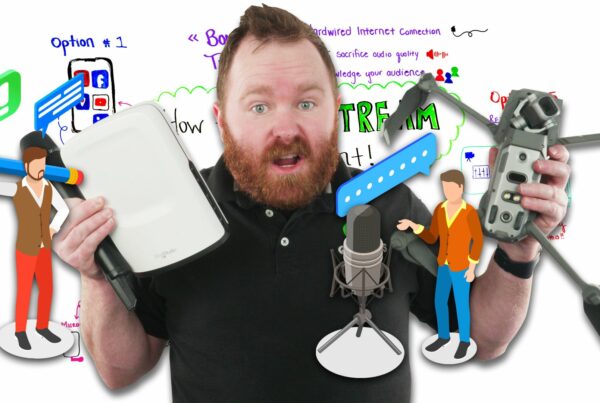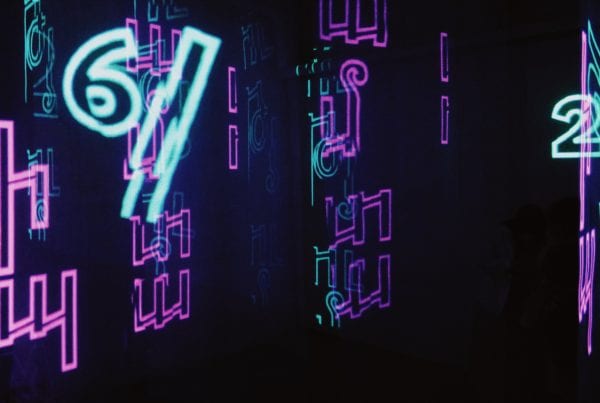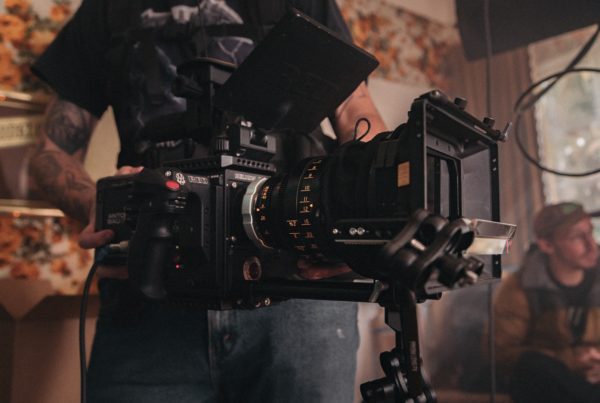The post you’re about to read is all about AV quotes essentials. Our hope is that one day, AV quotes will not need to be clarified and you will have a flawless AV experience every time. But until then, we want to share some small details that can make a BIG difference, especially from a cost and headache perspective. Plus those things that seem obvious but are actually a bit more complex than you might think.

And you might say to yourself, “Why am I asking these questions? Isn’t it the AV company’s job to worry about this?”. Well, you are right. But, not all AV companies will be there to clarify. And sometimes, it’s easy to forget the details. And if what you’re after is a flawless event, then the AV quotes essentials master post is your new bible. Keep reading!
 AV Quotes Essentials: Top 5 Things To Know
AV Quotes Essentials: Top 5 Things To Know
Grab your coffee, tea, or protein smoothie, because we’re getting right into this. And the first step we’re taking to teach you all about AV quotes essentials are the top 5 things to know. Because when it comes to AV, asking questions and having basic knowledge are two of the best things you can do. So let’s dive in!
What is an AV quote?
Let’s start with the basics, shall we? We’ve been talking a whole lot about Av quotes. But what are they when you boil it down to their core? Well, AV quotes will always be part of an agreement. In every contract, an Audio Visual (AV) quote is the piece of a vendor agreement that has the dollars attached to it that breaks apart the projected cost of different materials. Keep in mind that AV quotes will come in various types of forms, Excel documents, and software.
How do I read AV quotes?
Oftentimes, AV quotes are confusing. And that’s why we have put together this AV quotes essentials guide to help you out. Despite the differences in the formatting of quotes, every quote will contain similar major sections. The sections break down into various topics:
- Audio. The audio section will contain all information related to sound including speakers, soundboards, amps and the sound system at the venue. You will want to ensure the materials included will provide sufficient volume for the size of the venue.
- Video. The video section will contain information related to projection, sources, switching, and cameras.
Similar to the audio section, you will want to review the quoted materials with the venue to ensure the video projection hardware is compatible with the size of the event.
- Lighting. The lighting section includes power distribution, truss rigging, and lights (naturally).
- Misc: Miscellaneous materials you may need to plan for are staging, or pipe and drape. Note: If your event has multiple entrances/stages, you will need to account for the variations here.
- Labor. Labor will include the various individuals who will operate each portion of your event. Examples include media technicians and an event crew. Media technicians work with AV delivery, pick-up, sound, lights, and video. An event crew’s responsibilities include moving around tables, chairs, and props. Often times labor positions and costs are not interchangeable.
- Expenses. Examples of additional expenses could include travel, rooms, per diem, and shipping. The expenses section relates to the labor section based on the number of workers that will be needed to execute the event.
What should/shouldn’t I see?
Within the AV quote, all major items are listed. What is a major item?, you may ask? Well, major items include a projector, screen, or maybe a kit that says “video cable.” Smaller things aren’t normally listed or are shown as a kit or a system. For example, you may see an audio workbox or projection system. This makes it difficult to compare different AV agreements.
So, when reviewing the kits/systems, make sure that it describes the goal and tells you a few pieces involved in making that happen. For example, if a projector system is listed, it should say the type of projector, size, etc. You should be able to understand whether the system will be compatible with your audience. Ultimately, try and get as descriptive as you can and define what’s included in the system.
You might ask yourself, why isn’t everything listed? Ultimately, the AV quote lists items that are charged for. Hence, a comprehensive list of all the materials needed that are not charged for would be overwhelming.
Discount Opportunities
Undoubtedly, incorporating AV into your event can get expensive quickly. It’s no surprise that many large events require various large promoters. There are, however, opportunities for some pricing flexibility.
First, you will need to understand the discounts offered to you. For example, they could charge you for equipment for a 4-day week (of a 7-day rental) or a 25% discount. After doing the math, you will learn that both discounts are essentially the same thing. If you find out they charge you for 4 days, you may be able to negotiate that down to 2.5 days or increase to a 30% discount.
Policies vary between companies depending on the days charged and discounts offered. Labor positions are not typically interchangeable due to their specific skill sets. Union rules may also apply – be aware of that when looking at venue contracts.
Compare Costs
If you compare companies, you will need to understand the equipment rental differences and costs. There are various resource sites, such as Projector Central, where you can look up specific projector names and information and get a sense of the capability and cost of these systems. This will give you a starting point to have a good conversation with the salesperson and give you a place to intelligently dig into the show and their thought process behind it. The goal here is to make an educated decision.
You will also want to take note of the frequency that you are charged. Often times companies charge by hours or days. If your quote breakdown is in days, you’ll want to define how long a day is. Usually,s a day is 10 hours. If it isn’t indicated, you might want to layout potential overtime needs and costs. This way, you can eliminate any hidden surprises. In the end, you’ll want to provide as much information as you can to get a more accurate quote.
 AV Quotes Essentials: 10 Things You Need To Clarify On Your Next Quote
AV Quotes Essentials: 10 Things You Need To Clarify On Your Next Quote
Now that you have your basics locked down, we’re taking things up a notch. Don’t worry, it’s nothing you can’t handle! This time around, on the AV quotes essentials master post, we’re going over 11.5 things you need to clarify on your next quote. And why do you need to clarify these things? Because you want a seamless event with no sneak costs!
Single-day vs Multi-day
For multi-day events, it’s very important to ask if you are being charged for a single day or multiple days for your equipment. Read our blog on the topic of how to compare AV quotes for more information on what a day rate is.
It’s important because unless their quote shows you what the single-day rate is, some vendors might be willing to give you a single-day rate for the equipment to match a competitor. Doesn’t hurt to ask, but similar to asking for a discount, be prepared to offer something in return. Don’t forget that business is a two-way street!
Does this quote include all of the costs and fees?
This might surprise you, but not all costs are included in some quotes. Shocking, but not the end of the world! It’s important to ask this and see what sort of scenarios would cause additional fees or costs to be added.
For example, some outside AV companies (non-in-house companies) will not include the power and rigging costs needed to pull off the setup they are selling you. And then you’ll be surprised when the hotel bills you. So, we recommend that all AV vendors make their quotes 100% inclusive of all of the costs so you, the client, can see the real cost of the event.
Do you recommend anything to make our event run more smoothly?
You always want your AV company to get your quote exactly within budget, right? Well, sometimes, this relentless desire to stay in budget means an AV company may leave out some optional but very helpful pieces of equipment. Let’s say their first quote comes in budget. But wouldn’t you be willing to spend an extra $200 to have that one piece of equipment that will make everything just flow and run more smoothly? Or provide your attendees with an unforgettable experience?
Chances are you would. For example, many corporate events don’t think about having a confidence monitor, slide advance (also called a clicker), and a timer on stage. These can make it easier for speakers to manage their time and give a more effective presentation. But sometimes, to get you the lowest quote, an AV company will leave this out unless you ask for it. So go ahead and just make sure you ask!
Can you summarize the various areas of your contract?
First, we have to start this by saying we aren’t lawyers. And you should always consult your attorney before signing any agreements. However, when you first receive your quote, ask the company to summarize some of the main points of their contract. Is there a fee if we use a credit card? Do you have any insurance requirements?
Will I get hit with a fee if I wear green shoes? You know, important stuff. Getting these from the AV company will give you an idea of what they mean in layman’s terms before you have your attorney review it and for you to get an idea of how the company works for big things like payments, cancellations, late payments, confidentiality, and so on.
Equipment differences between AV quotes
We discuss this one heavily in our How To Compare AV Quotes blog post. But when you get your second (or fifth) quote from an AV company, ask them to explain the difference between the specific pieces of equipment the other company chose, and theirs.
They should be able to explain it in simple layman’s terms that you understand. Remember, there is a difference in equipment and the AV company should be able to admit when the other company chose effective equipment, not just down talk about the competition.
Is staffing enough to satisfy your service expectations?
This can be a huge discrepancy between quotes sometimes. You might look at one quote and wonder why they gave you one AV technician, while the other company gave you three. Ask the company what their game plan is for the staff and how they will service your event. For example, if you have 10 breakout rooms, will 2 technicians roam and cover those 10 rooms? Or do you want to have 1 person in each room watching the AV needs like a hawk?
There isn’t anything wrong about these. But each definitely offer pros and cons. For example, the roaming technicians are definitely a cost-effective option. However, if there are too many simultaneous problems, they may not be able to service them all. Also, it takes a very experienced and efficient technician to solve problems quickly and move from room to room.
Now, having a technician in each room might be needed. Because you have a lot of activity happening in those rooms and you want to make sure they run flawlessly, which is worth the extra cost to you. Again, just ask what their game plan is and they can easily explain and make sure that matches what you are looking for.
 How much power do you need for this?
How much power do you need for this?
This somewhat goes back to the question “Does this include all of my costs and fees?”. For most small events, the AV company can tap into the walls of the outlets. But for some medium to larger events, the AV company is going to need additional power.
In addition to how much power you need, it is important to ask what type of power is needed. Because believe it or not, there are many types. A great follow-up to how much power you are going to need is “Do I need to order that and pay for it or are you?” At Endless, we prefer to take care of the bill for the client. So if we need more power, the client doesn’t have to worry about it.
Does this quote match the riders or the needs of the talent/speakers?
A rider is a set of requirements that talent or speakers may require to do their performance or presentation. Everyone has heard the story of one artist asking for a bowl of just blue M&Ms. Chances are, your talent isn’t going to be that picky. But riders do serve a very important purpose – even though they may sound ridiculous at times.
While riders are completely negotiable, it is our personal belief that a rider serves an important purpose. And that is to create an atmosphere where the talent can do their best work! So sometimes, giving them what they want will allow them to do even better. However, it’s also easy for them to be forgotten. It’s important to make sure none of your talent has any riders or special requests.
For example, does the speaker you have work really well with hand gestures? And would they benefit from a lapel microphone versus a handheld? Do they need a confidence monitor to see what is on screen? Ask your talent and presenters if there is anything they need. And then relay that to the AV team. Yes, sometimes these add extra costs. But ask your AV company to explain what a simple cost looks like, such as an adapter. And also what is ridiculous, like sharks with lasers on their heads.
What do I need to provide you with to make this all work?
The ideal answer to this question is nothing obvious. But sometimes, critical items can be left off of a quote. Either to save money or because the AV company doesn’t provide it. For example, who is providing the laptop to run the presentations? If you are having people bring their own laptops, is the AV company including all of the necessary video adapters?
An additional question to ask is who is providing the content. For instance, do you need to have a sponsor slideshow with logos? Are you making that or is the AV company? Ensure it is noted on your quote so there is no question of who is providing the content. Asking if there is anything you need to provide is very important. At Endless, whenever a client promises to provide something like a laptop or something else, we always make note of it on the quote so there is no dispute.
What is the format of the content? Powerpoint or Keynote? High definition or standard definition?
This might be the most technically overlooked part of events with some sort of presentation. If the AV company is providing the laptop, it becomes even more important. Knowing whether your presentations and content are going to be 16×9 (widescreen or sometimes also high definition) or 4×3 can make the difference between your presentations looking great, and looking, well, blah.
For example, if your AV company provides you 16×9 screens and all of your presentations are 4×3, you’ll have awkward blank spots on the sides of your presentation. With the reverse, you’ll have awkward blank bars on the top and bottoms of your screens. Lastly, if the AV company is providing the laptops for presentations, we would recommend they have Macs. The reasoning is most Macs have Keynote by default, but also most presentation laptops will also have Powerpoint. With a PC or Windows computer, they cannot run Keynote without converting it. It’s important to clarify what type of presentations will be shown.
Bonus tip: When you decide what format your presentations will be in, communicate that to all of your presenters and make sure they all have the same format of presentation, so there is consistency.
AV Quotes Essentials: What About Discounts?
We wanted to end on this point because usually after you have figured out all of the details, the talk about price will be brought up for your event. This is also when people usually request discounts. We, obviously, come from the AV supplier side of the conversations. So we just wanted to bring up some thoughts as you ask for your next discount. While we are on the side of growing our company, we are not 100% against discounts. And we bet it’s safe to assume that most AV companies are the same.
How To Make Discounts Work
However, there needs to be some give and take when it comes to this. So if you like your AV vendor but you just really need to get the quote into a certain budget, it’s important to do the obvious and ask for a discount. We recommend telling the AV company what you need the quote to get to, and we’ll do our best. Do not hide your desire for a quote through things like “well the other company said they’d do it for X” or sending our quotes out to other vendors and asking them to beat it. Just ask us what price you need and we’ll do what we can.
Give And Take
Now the question becomes, why would an AV company be willing to give you a discount? This is an important question to ask yourself when getting a discount. Does the AV company see long-term potential in your relationship? Is there a large amount of availability and they would rather make some money versus no money? Are you a non-profit and they want to deduct your discount from their taxes?
When asking for a discount, it’s important to offer something in return. Most salespeople don’t want to give a discount, do a great job at the event, and then never be called again. So at a minimum, if you are getting a discount, and the AV company does a satisfactory job at the event, it is reasonable for that AV company to earn the next event and not have to “fight” to keep you as a client. Remember that giving a discount means that the AV company is missing out on an opportunity to make money. So think to yourself, if I were an AV company, how could I make up for this discount either in the short term or long term? Discounts should always have a large conversation around them full of clarification so every party is happy.
AV Quotes Essentials: Conclusion
And so we’ve reached the end of the AV quotes essentials master post! We hope this article was helpful and pops into your mind when choosing an AV company. Now, you’re up to speed with the basics and all the things you should clarify. Just remember that your AV supplier is your partner, so if you ever have any questions, do not be afraid to ask! They should be happy to answer and offer help every step of the way. If you have any questions about AV quotes or more ideas on what you should be clarifying, leave us a comment below and we’d love to hear it!










